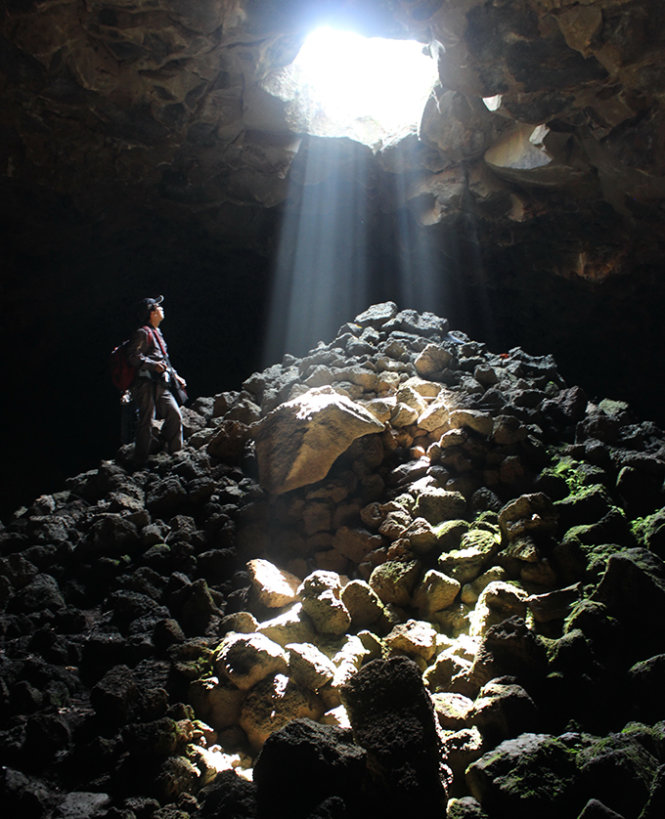Tuoi Tre (Youth) reporters joined a recent further exploration led by Japanese experts into Vietnam’s first-ever volcanic cave system, one part of which is considered the longest such feature in Southeast Asia.
The volcanic cave system, located in Krong No District of Dak Nong in the Central Highlands, consists of 12 caves.
The discovery of the system was announced in late December 2014 by experts from the General Department of Geology and Minerals of Vietnam and the Japan Caving Association (JCA) after seven years of research.
The JCA exploration team returned to the site in a week-long expedition which kicked off on Saturday last week for further research. The JCA is credited with measuring, researching on and announcing the discovery of the volcanic system.
Dr. Hiroshi Tachihara, honorary president of the JCA, has explored caves in the past 40 years.
The oldest in the team, the 76-year-old expert remains surprisingly fit and agile.
Dr. Tachihara, who always wears a beaming smile, is always the first to enter the caves and the last to leave them.
The group’s other members are aged from 20 to 60.
Tuoi Tre reporters are particularly impressed with the Japanese team’s highly disciplinary working attitude, dedication and environmental protection awareness.
While taking rest, Dr. Tachihara handed out sweets to everyone in the group and insisted they put the sweet wrappings in their pockets instead of littering them in the forest.
An indigenous guide said the old man chased after a sheet of paper which was blown away by winds, determined not to leave it in the forest.
In 2007, scientists from the general department detected some volcanic caves in the district and JCA experts have since joined their counterparts in further explorations.
Dr. Tachiohara previously said at a press conference that five of Southeast Asia’s six longest volcanic caves belong to the volcanic cave system that has just been found in Vietnam.
The system, which is a unique natural heritage of the volcanic eruption process that took place millions of years ago, is the first to have been discovered in Vietnam.
It includes 12 volcanic caves, three of which have been measured in detail.
One of the three is 1,055 meters long and the Japanese scientists said it is the longest volcanic cave in Southeast Asia, experts said, adding that some parts of this cave cover thousands of square meters.
The discovery will be of great significance to international geological and archeological studies, as very few places in the world have such a system of volcanic caves and craters as that in Krong No, experts said.
Dak Nong authorities are conceiving a project to build a geological park (geopark) that houses the 12 volcanic caves, with a view to obtaining UNESCO recognition of the place as a global geopark in the future, a senior official said following the discovery in late December 2014.
The project will be submitted to the Prime Minister and relevant agencies for consideration, the official said, adding that their most important plan is to introduce the park to UNESCO and earn its recognition.


















































